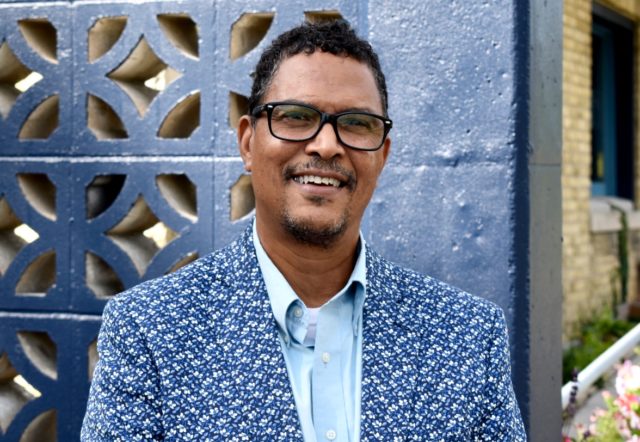The Madison Common Council will consider a resolution Tuesday that would create a Truth and Reconciliation Workgroup under the purview of the city’s Equal Opportunity Commission (EOC).
The resolution, introduced by EOC Member and Alder Brian Benford, calls for a workgroup to meet bimonthly for the rest of 2022 and produce a report and recommendations by December 31.
Benford said the EOC, made up of community members as well as two alders, is better situated to examine and identify historical and current racial disparities in the City than elected representatives.
“As policymakers, we’ve had our opportunities to right some of these wrongs since the founding of the city and we haven’t,” Benford said.
Benford noted that the Race to Equity report by the Wisconsin Council on Children and Families – now called Kids Forward – is nearly 10 years old now. That report surprised many in the Madison area by demonstrating that Dane County had some of the deepest racial disparities in the nation.
“I don’t know how many times I read their report over the years. But in my research for this, it’s just like, we didn’t move the needle there. We didn’t move the needle,” Benford said. “Things are actually worse here. Why aren’t our political leaders screaming about this? I like to think that they care. But maybe they’re misinformed. And maybe this process will get us all thinking that we got to do much, much more.”
As of the time of publication, the resolution has only three cosponsors: Benford, Nasra Wahelie and Erik Paulson, who was just appointed last month to replace Lindsay Lemmer.
By contrast, every sitting alder and Mayor Satya Rhodes-Conway signed on as cosponsors of a resolution officially recognizing Juneteenth.
“I wonder if the city of Madison can handle the truth,” Benford said. “Because, once again, many of these amazing, generous people … don’t know about the disparities.”
The text of the resolution includes a few examples of those disparities, including:
- Although Black residents make up 5.5% of the Dane County population, 45.9% of the individuals incarcerated in the Dane County Jail are Black
- According to a 2021 report by the JFA Institute, “about 10% of all Blacks are arrested at least once a year in Dane County as opposed to 1% for all other racial and ethnic groups”
- 2.6 percent of white residents are uninsured, as compared to 9.3 percent of Black Madisonians;
- In 2011, Department of Public Instruction data showed that Madison’s Black students were significantly less likely to graduate high school on time (49.9%) than African Americans living elsewhere in the state (63%). In 2019, 10.4% of Black students scored proficient or advanced in math, compared to 60.6% of white students. In social studies, 13.2% of Black students scored in one of the top two categories in 2018-19, with 67.7% of their white peers doing the same curriculum.
The resolution calls for the EOC to appoint the workgroup, which will, according to the text of the resolution:
- Meet at least bimonthly.
- Design and facilitate the implementation of a Truth and Reconciliation Process.
- Host a community forum/s to allow opportunities for Black residents to voice their grievances around past injustices within the City of Madison.
- Facilitate a community forum/s with expert presenter/s on reconciliation and healing.
- Draft a report to submit to the City of Madison’s Equal Opportunities Commission for introduction to the Madison Common Council detailing policy recommendations that the City of Madison could implement to address past wrongs.
“I’d like to be able to have that conversation,” Paulson said. “I’m interested in seeing where this goes. And I think Brian has, has an idea for an interesting process. And the EEOC seems to be interested in pursuing it. And so let’s let the conversation play out.”
Paulson said Madison has had many conversations about racial disparities, and Benford’s proposal seems “action oriented.”
The resolution would also allow the EOC to solicit private donations to fund the workgroup.
The resolution was first introduced to the EOC in January, and not formally approved until a unanimous vote in May. One sticking point was the very name of the process. Benford is aware of the weighty implications of the title “Truth and Reconciliation” – the name of the process that helped South Africa emerge from Aparthied.
“There was debate for the longest time … (some EOC members) wanted to call it a ‘truth and listening’ process,” Benford said. “The difference between listening and reconciliation … listening is part of reconciliation, acknowledgement. But then there’s action afterwards. So we were bogged down in those kinds of conversations, which was, I think, really helpful.”
Rhodes-Conway was not available for comment, and no other alders responded to messages seeking comment Sunday.




























